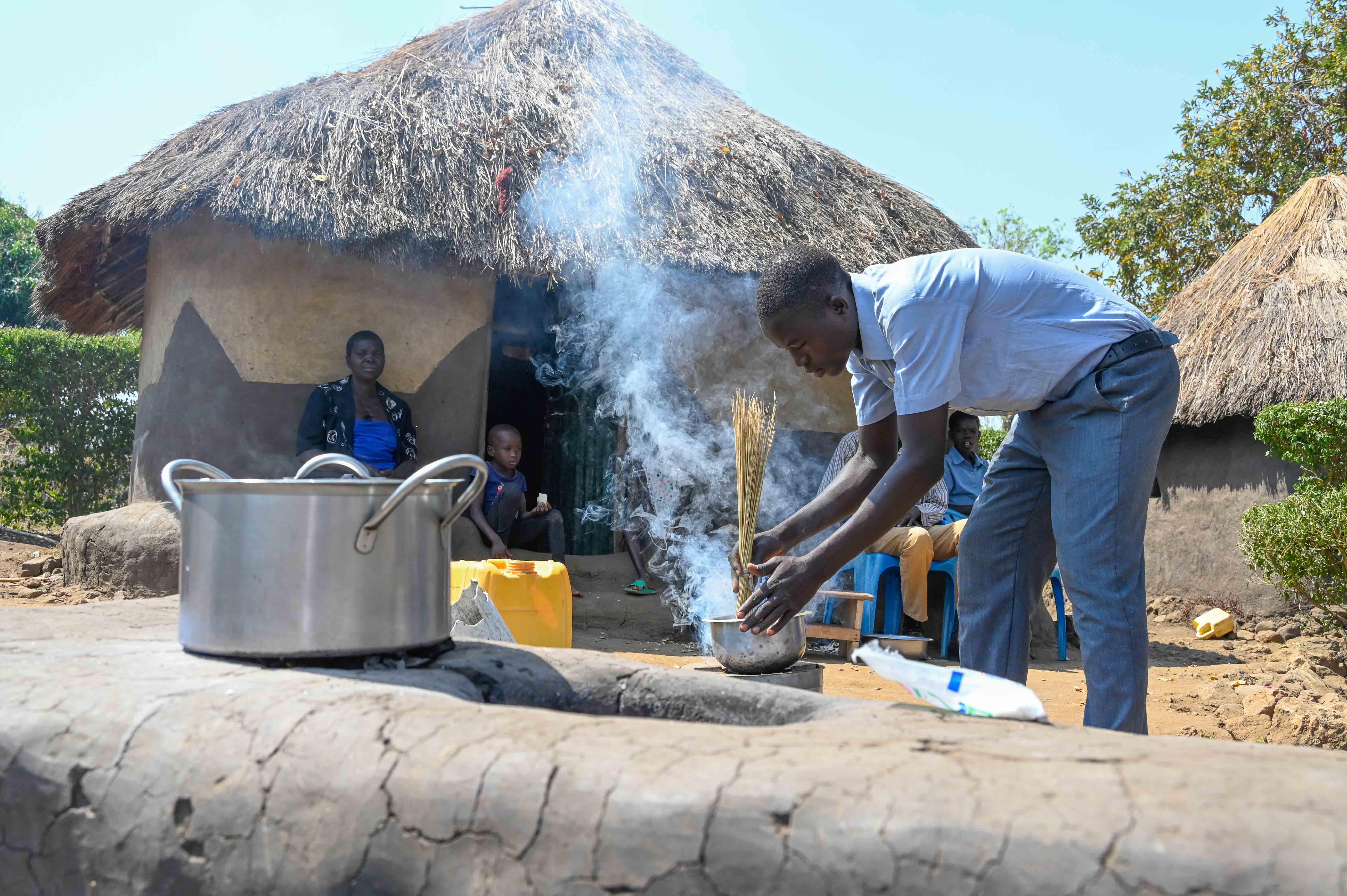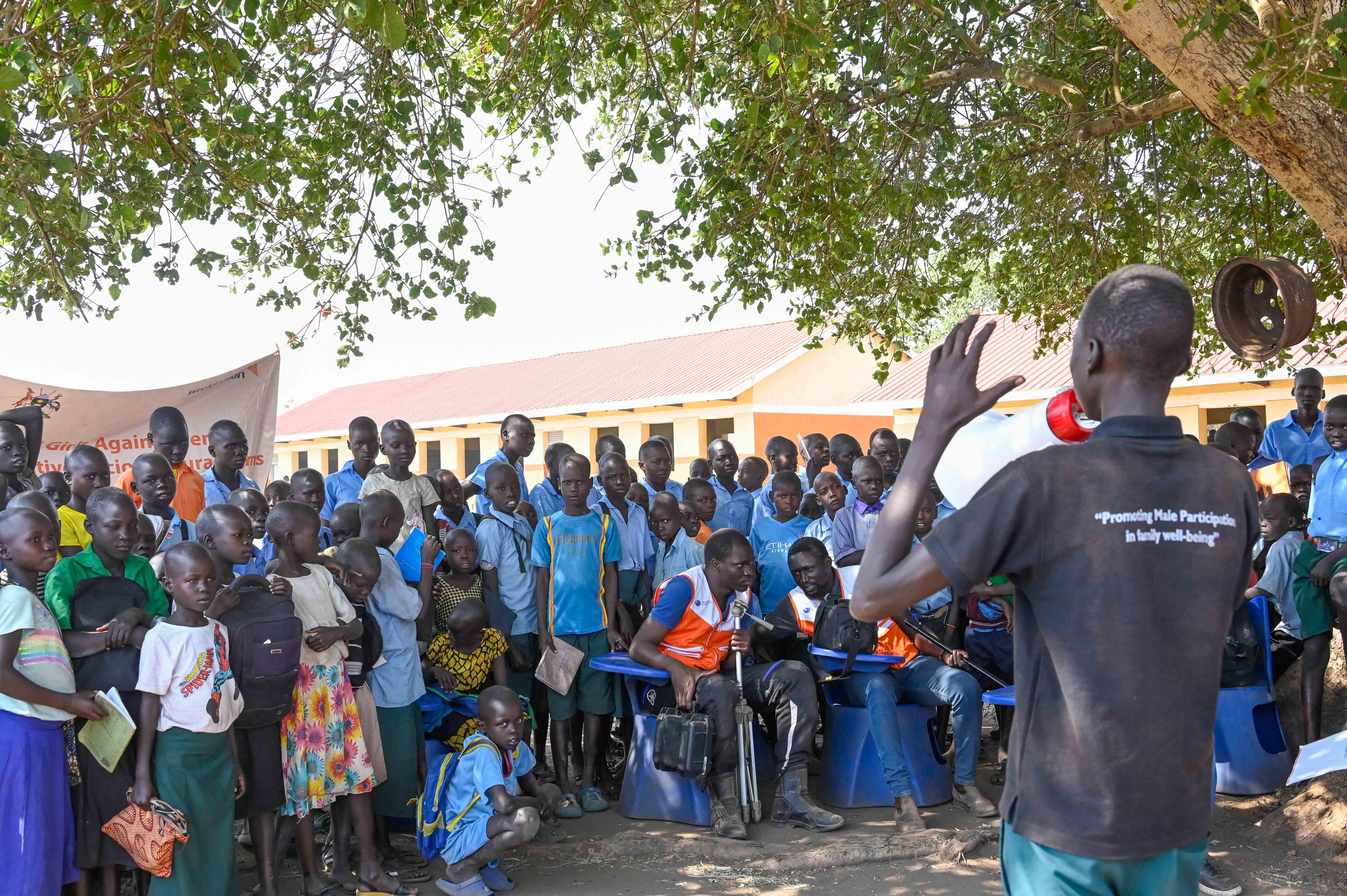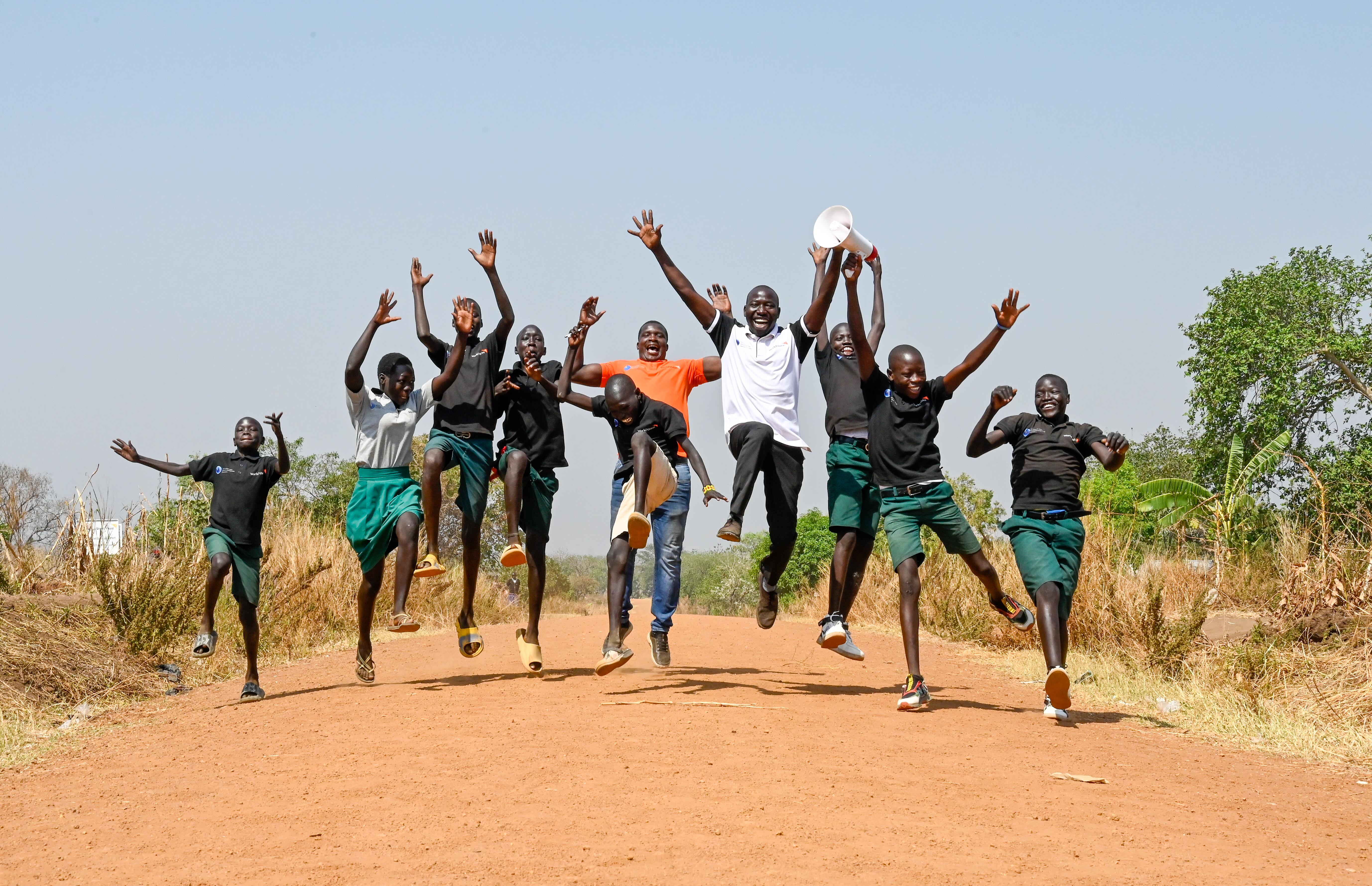Seventeen Male Action Groups (MAGS) consisting of 15 young boys including children with disabilities in Maaji and Mungula refugee settlements and two sub counties of Ukusijoni and Itirikwa in Adjumani district are arising awareness on gender roles in families and male involvement in prevention and response to violence against children.
In order to ensure sustainability and functionality, the groups were formed within the schools with each having patron to support and guide activities. The patrons were trained in male care model. Sessions and topical discussions are informed by the prevailing negative factors affecting boys and girls.
James Loki, 17, is one of the first beneficiaries of the male campaign. He says before the intervention, he thought there are particular house chores for both boys and girls.
“My work was only grazing and digging. Cooking, washing utensils and cleaning the house were for my sisters. However, the Male Action Group has taught us to share responsibilities and the work my sisters do I also do,” says James.

“I now accompany my siters to fetch firewood. We do most of the work together and this has helped to create a strong bond amongst yourselves,”.
The groups also teach their peers about behavioral change. Under this, the children are asked to observe what their fathers do and implemented the positives and address the bad behaviors their fathers portray.
“This has helped us to easily discern what is right and wrong. It has also given us an opportunity to talk to our parents especially when their actions towards us are not good for instance fighting at night when a parent returns home drunk,”.
Previous reports from World Vision operational areas both in the host and refugee communities show that alcohol and drug abuse are the leading cause of domestic violence. Protecting children from such vices is vital and male engagement and mentorship is the right course.
Adjumani Child Protection, Livelihood and Environment Project funded by the Ministry of Foreign Affairs has so far created awareness to over 200 households on the negative effects of alcohol, harmful traditional practices, and domestic violence on children.
“Father and daughter sessions have made fathers understand their roles and how best to protect their children from harmful practices. The biggest hindrance in protecting girls in the settlement is our cultural beliefs in South Sudan. We are focused on changing the mindset of our parents to create and conducive environment for children to thrive,” says Dominic Lotalia, a group member.
In December 2022, the groups conducted awareness campaigns as pre-activities for the 16 days of activism. Due to this intervention, reporting and referral of cases to World Vision by community members has improved resulting into timely response and prevention measures.
“We appreciate World Vision for using a model that encourages child participation. We have noticed change in some families and girls and women now feel appreciated and valued. Child protection and fighting gender disparities is a collective responsibility,” says Petros Donggiek, a Refugee Welfare Committee chairperson.

Stephen Nyuma, a teacher at Kolididi primary school says the male campaigns have impacted pupils through awareness raising at school during weekly assemblies.
“Previously girls dropped out of school before completing their primary education cycle because they were subjected to too much house work with little time for school. However, last year, none of the pupils in the candidate class dropped out which was a great achievement to the school,” says Stephen.
Reagan Acire, the World Vision Child Protection Case worker, says refugee communities value boys more than girls and this is the major challenge the campaign seeks to address.
“This explains why girls and women are always subjected to too much work and gender unfairness. We are already encouraged by the results we are registering. Mindset change will enable us have violence free communities”
Reagan Acire, World Vision Child Protection Case worker
How can you help protect girls’ rights?
World Vision intentionally focusses on women and girls in every aspect of our work, because we know that when women and girls are empowered, everyone wins.
When you sponsor a girl, you’re helping World Vision teach communities about children's rights and enabling women and girls to overcome the barriers they face. Together, we can support and amplify children's voices to hold authorities to account and campaign for change through child parliaments, girls' clubs and child protection committees.
